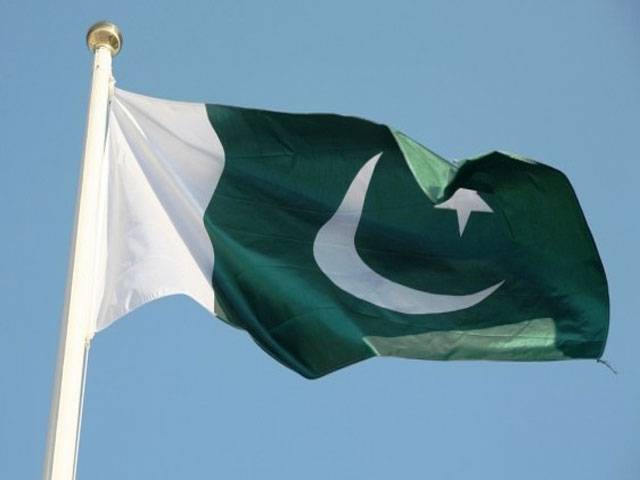ISLAMABAD – Pakistan on Monday reassured the Kashmiri people of political, moral and diplomatic support for their just cause – for the right of self-determination – as enshrined in the UN Charter and the relevant UN Resolutions, and called for an end to human rights violations in the occupied Valley.
In their messages on Kashmir Solidarity Day, President Asif Zardari and Prime Minister Pervaiz Ashraf paid rich tribute to valiant Kashmiri martyrs who laid down their lives in their quest for realising their inalienable right to choose their destiny by themselves.
The two leaders called for an end to human rights violations in Indian-occupied Kashmir, stating that Pakistan had demonstrated seriousness of purpose and sincerity in resuming the dialogue process with the neighbouring state.
Reiterating Pakistan’s principled stand on Jammu and Kashmir, Prime Minister Ashraf said “the government of Pakistan and its people reaffirm their commitment to the just cause of the Kashmiris and their right to self-determination”. He promised that the Kashmiris would continue getting whole-hearted moral, diplomatic and political support for their struggle from Pakistan. “We will stand by them until the realisation of their demands; they can count on us in their hour of anguish,” the premier said giving a solemn pledge to the Kashmiri people.
Ashraf said 5th February was observed as Kashmir Solidarity Day by the people of Pakistan every year to reaffirm “our steadfast resolve to stand by our Kashmiri brothers and sisters in their valiant struggle to achieve their legitimate right of self-determination in accordance with the relevant UN resolutions. It demonstrates our commitment to support the just cause of the Kashmiri people”.
The premier further said the Kashmir dispute held the key to durable peace in South Asian region and “Pakistan feels that a sustainable resolution of the problem would only be possible if the aspirations of the Kashmiris were taken into account”.
In his message, President Zardari noted the Kashmiris had remained resolute and steadfast in the face of oppression spanning over six decades. Pakistan believed that the use of force, coercion and violation of basic human rights could never succeed in suppressing an indigenous struggle, he said, and hoped that perseverance would bear fruit. The president reassured the Kashmiris that Pakistan remained firmly committed to finding a just and peaceful solution of the dispute.
In his opening remarks at the 48th Session of Azad Jammu & Kashmir Council at the Prime Minister’s Secretariat, Prime Minister Ashraf said Pakistan and India stand at the crossroads of the history. “The Kashmiri people are looking up to the two countries to fulfill their obligations by allowing them to exercise their right to determine their future.”
Pakistan, the prime minister affirmed, had conveyed to India that it seeks friendly, cooperative and good neighborly relations with it. Pakistan had emphasised on the need to invest more on building trust and infusing greater political skill in resolving all the outstanding issues, including Jammu and Kashmir, he added.
He recalled that Pakistan had always supported dialogue with India, saying, “We have initiated CBMs (confidence building measures) in good faith and hope that the CBMs would mitigate the suffering of the Kashmiri people. We also hope that the CBMs would lead to the resolution of the Kashmir dispute in accordance with the wishes of the Kashmiri people.”
The Kashmiri people, the prime minister said, were engaged in a legitimate struggle for the implementation of the United Nation’s Security Council resolutions. “The people of Indian-held Kashmir continue to render great sacrifices for the Kashmir cause,” he noted, “Pakistan feels that it should be uninterrupted as it is important to sustain this process to make it result-oriented.”
The session passed unanimously a proposal for constitution of a public accounts committee and approved the nomination of Muhammad Mehboob as its first chairman. Muhammad Nadeem and Babar Zulqarnain were approved as its members.
The council also considered and passed unanimously “The Azad Jammu and Kashmir Council Removal from Service (Special Powers) (Repeal) Act 2013”.
Earlier, the council offered fateha for the martyrs who laid down their lives in the heroic struggle for freedom in Indian-held Kashmir.
Those attended the meeting included AJK Acting President Sardar Ghulam Sadiq Khan, AJK Prime Minister Chaudhry Abdul Majeed, Minister for Kashmir Affairs Mian Manzoor Ahmad Wattoo, Minister for Law and Justice Farooq H Naek, MNA Tanzeela Aamir Cheema, MNA Nawab Muhammad Yousuf Talpur and other senior officials.
Jamiat Ulema-e-Islam-Fazl chief and Kashmir Committee chairman Maulana Fazlur Rehman meanwhile said that negligence of the ruling leadership over the Kashmir issue could lead to disappointment among the Kashmiri people.
Addressing a news conference at the Parliament House, Rehman said that despite Indian aggression on the line of control (LoC), Pakistan was blamed for antagonism. He said Indian hostilities in occupied-Kashmir had touched the peaks and bloodshed on a daily basis was chalking a new history of barbarism.
He urged the media to appropriately highlight the viewpoint of the suppressed Kashmiri people and play a pivotal role to help them get their inborn self-determination right.
Thursday, April 18, 2024
Pakistan calls for end to rights violations in Kashmir

9:06 PM | April 17, 2024
9:05 PM | April 17, 2024
Courage vs Hypocrisy
April 18, 2024
Modi’s Pulwama-Like Operations
April 18, 2024
Justice denied
April 18, 2024
AI dilemmas unveiled
April 18, 2024
Tax tangle
April 18, 2024
Rail Revival
April 17, 2024
Addressing Climate Change
April 17, 2024
Saudi Investment
April 17, 2024
Political Reconciliation
April 16, 2024
Pricing Pressures
April 16, 2024
Workforce inequality
April 17, 2024
New partnerships
April 17, 2024
Shikarpur crisis
April 17, 2024
Peace quest
April 17, 2024
Democratic harmony
April 16, 2024
ePaper - Nawaiwaqt
Advertisement
Nawaiwaqt Group | Copyright © 2024





